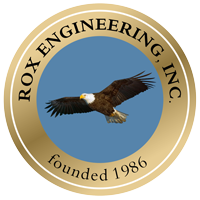Rox Engineering has extensive experience in providing management support for Federal, State and local environmental regulations to include performing compliance audits; permitting for RCRA, CERCLA, CWA, NPDES, and CAA activities; SARA Title III (Tier II/TRI Form R) documentation; storm water pollution plans (SWPPP); spill prevention control and countermeasure plans (SPCC); and PCB investigations.
All facilities that currently or plan to treat, store, or dispose of hazardous wastes must obtain a RCRA permit. The support efforts that we provide include reparation of RCRA and solid waste permit applications, risk-based investigations and corrective action, groundwater modeling, remediation, and closure plan development.
Any business which stores, uses, or releases hazardous materials may be required to comply with one or more provision of SARA Title III. Additionally, SARA Title III requires a business or individual to report releases of substances with a federally designated Reportable Quantity if the release exceeds that amount in any 24-hour period. There are four major sections of SARA Title III. They are:
- Planning Notification (Sections 302 - 303)
- Emergency Release Notification (Section 304)
- Hazardous Materials Storage Inventory (Sections 311 - 312)
- Toxic Chemical Release Inventory (Section 313)
The Clean Water Act (CWA) Act is the primary federal law in the United States concerning water pollution and requires permits to release pollutants into lakes, rivers or other waterways. The National Pollutant Discharge Elimination System (NPDES) is system for granting and regulating discharge permits. NPDES regulates both point and non-point sources that discharge pollutants into waters of the United States.
The Clean Air Act (CAA) requires polluters to apply for a permit to release pollutants into the air. The permit includes information on which pollutants are being released, how much may be released, and what steps the source is taking to reduce pollution, including plans to measure the pollution.








